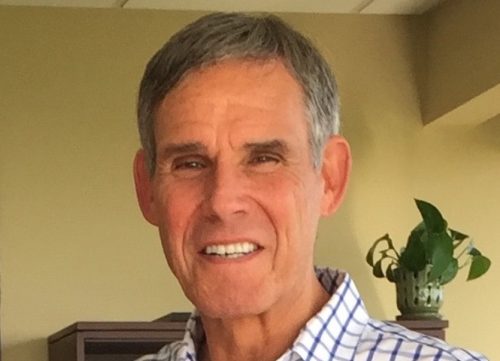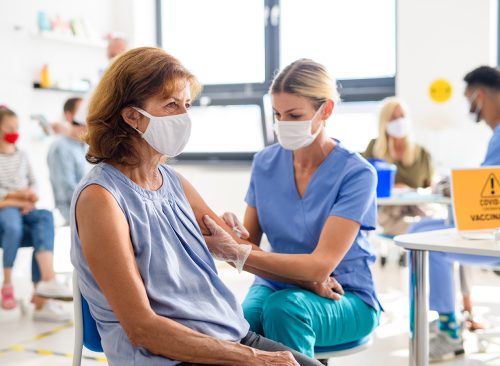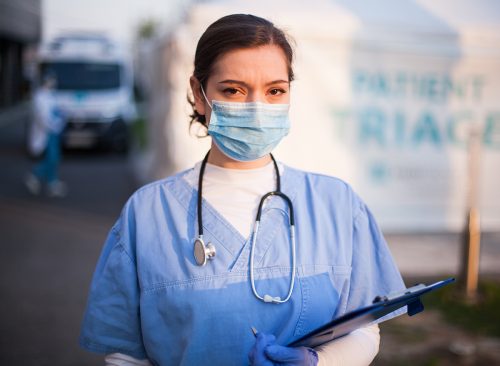
In these uncertain times, understanding the evolving COVID-19 landscape is paramount. Dr. Eric Topol, a leading virus expert, provides essential insights into the current situation. From the impact of the BA.2.86 variant to vaccine efficacy and global health implications, Dr. Topol’s expertise offers clarity. Discover the key takeaways on who should get vaccinated, the importance of tracking the virus’s evolution, and a glimpse of hope in the ongoing battle. As we confront this challenge, his guidance reminds us that unity, science, and resilience remain our strongest allies.

COVID Landscape and the BA.2.86 Variant: Dr. Eric Topol began by addressing the evolving landscape of COVID-19, especially in light of the new variant under monitoring, BA.2.86. He stated, “The data on daily hospitalizations is patchy at best, but we can’t ignore the signals from wastewater surveillance.” This method indicates an increase in virus transmission. While initially, the BA.2.86 variant seemed concerning due to its numerous mutations, Dr. Topol clarified, “From what we’ve seen so far, BA.2.86 isn’t as aggressive as we initially feared.” However, he also cautioned, “The virus’s evolution is unpredictable. We might face more aggressive strains in the future.”

The Updated COVID-19 Vaccine: Regarding the efficacy of current vaccines against new variants, Dr. Topol expressed optimism, “Our vaccines have shown remarkable resilience against new strains, but we must remain vigilant.” He further emphasized the importance of updating vaccines by stating, “Adapting our vaccine strategy to the changing virus landscape is crucial. We can’t remain static in this dynamic situation.”

From the discussion provided, several key points can be drawn about who should get vaccinated:
Everyone Over 6 Months: The discussion strongly suggests that everyone aged six months and older should consider getting the updated COVID vaccine.
Not Just the Elderly: There’s a misconception that only those over 65 or in high-risk groups need the vaccine. The experts note that severe COVID can happen to anyone, regardless of age, especially with waned immunity. Age should not be the sole determinant.
Protection Against Long COVID: A significant benefit of getting vaccinated is the reduced risk of developing long COVID. The experts emphasized that even those who have had COVID before can benefit from vaccination to reduce the risk of Long COVID.
Those With Weakened Immune Systems: Specific guidance was mentioned for children aged six months through 4 years and for people with weakened immune systems. They may need additional doses of the updated COVID-19 vaccine to complete their series.
No Group Is Risk-Free: Even healthy individuals with no underlying medical conditions can be at risk for severe COVID. Even children, who are often considered to be at a lower risk, have seen several hundred deaths, making vaccination for all age groups critical.
High Risk of Hospitalization and Death: Vaccines are known to protect against hundreds of thousands of hospitalizations and thousands of deaths every year. This is especially true during the fall and winter seasons, when respiratory illnesses are more prevalent.
Issues of Myocarditis: A potential concern with the vaccines has been myocarditis, especially in young men from their late teens to age 40. However, the updated booster has shown a very low incidence of myocarditis.
In summary, the consensus from the discussion is that widespread vaccination is crucial to protect against severe disease, hospitalizations, deaths, and Long COVID. The experts advocate for broad vaccination coverage, emphasizing that no demographic is entirely risk-free.

Dr. Topol highlighted the importance of vigilance in tracking the virus’s genetic shifts. “Every twist and turn of this virus teaches us something new,” he remarked. “We’ve got to continually monitor its genetic makeup.” The emergence of new strains such as BA.2.86 underscores this need. While the variant may not be alarmingly aggressive now, Dr. Topol reminded everyone, “History has shown us that the virus can surprise us. Ignoring a variant based on initial observations can be perilous.”

Discussing the broader implications, Dr. Topol pointed out the disparities in vaccine distribution globally. “While developed countries might have the means to adapt vaccines swiftly, we can’t forget about the global community,” he said. Echoing a sentiment of global unity, he emphasized, “In this fight, no one is safe until everyone is safe. We can’t let our guard down.”

As a potential solution, Dr. Topol highlighted the marriage of technology and collaboration. He enthusiastically shared, “Advanced genomic sequencing and machine learning are revolutionizing our response rate. But these tools are only as good as the global collaboration supporting them.” He urged countries and major pharmaceutical companies to work hand in hand. “Pooling resources, data, and expertise gives us the best shot at staying ahead of this virus,” he added.
RELATED: Surprising Signs You’ve Already Had COVID

Despite the challenges, Dr. Topol ended on a note of optimism. “We’ve faced pandemics before, and human resilience combined with the power of science always finds a way through,” he proclaimed. “We might not have all the answers today, but with collective effort and trust in science, we will prevail.”














